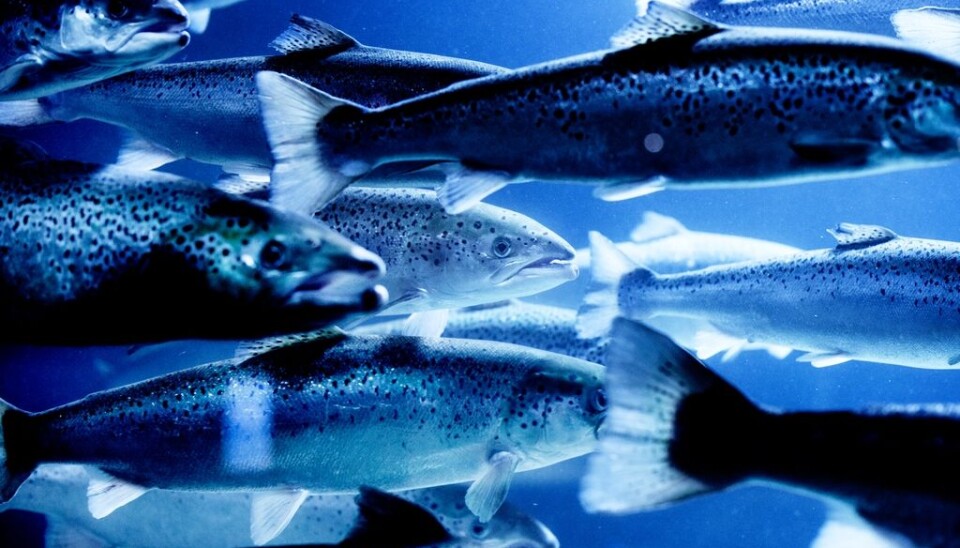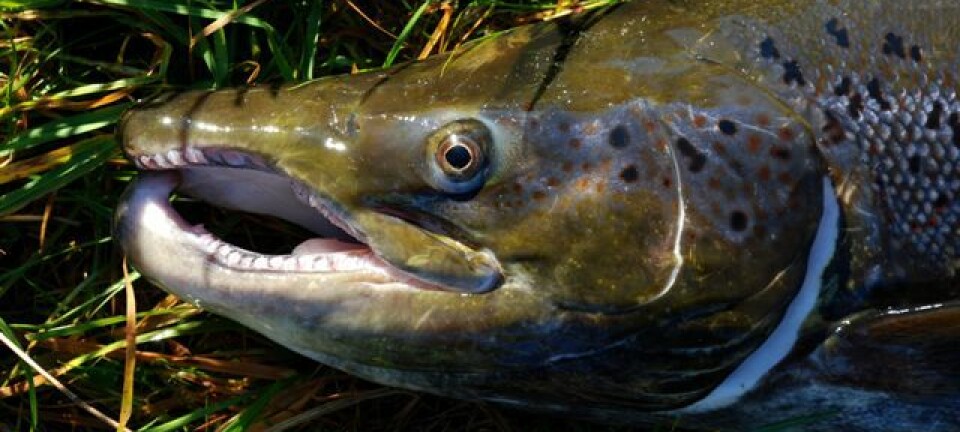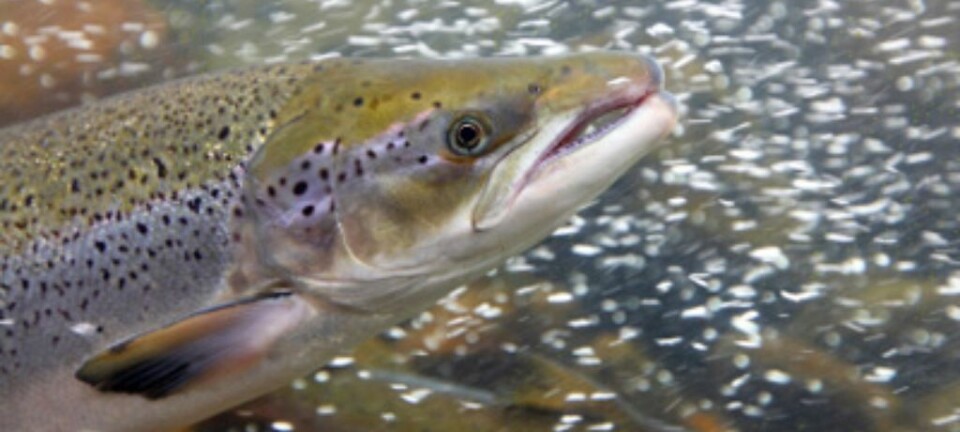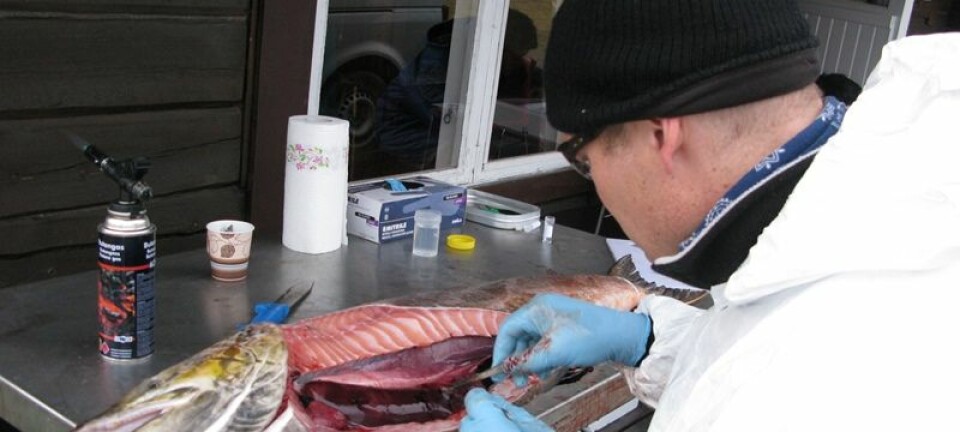
Wild salmon can adapt to climate change
Atlantic salmon are more capable of withstanding temperature changes than scientists had thought.
Denne artikkelen er over ti år gammel og kan inneholde utdatert informasjon.
Many species may be threatened by rising water temperatures caused by global warming, and wild salmon seems like it would be among those threatened.
An international research group led by Professor Göran Erik Nilsson at the Department of Biosciences, University of Oslo, decided to look more deeply into the issue.
The heart of a salmon
Salmon and most other fish species are cold-blooded. They depend on the water temperature for the regulation of their own body temperature.
Rising temperatures can affect a fish's heart. Cardiovascular capacity is lowered, and the fish may become more vulnerable to disease and predators. If the temperature gets too high, it can be fatal.

Other species can migrate to cooler waters, but salmon usually return to their native rivers to spawn. For this reason, it is not easy for salmon to find a new place to live.
Professor Nilsson and his group wanted to see how Atlantic salmon living in different water temperatures reacted to changes. They used salmon eggs from two different stocks: one from the Alta River in Finnmark, Norway and the other from the Dordogne River in France.
In Alta, water temperatures stay below 17 to 18 degrees Celsius, while the water temperature in the Dordogne, located in southern France, can rise to 26 degrees in summer. Naturally enough, the scientists assumed that the salmon from the warmer river would be better able to cope with rising temperatures.
“We speculated that we might have to cross French and Norwegian salmon in the future, to enable them to cope with temperature change,” Göran Nilsson said to forskning.no.
However, the researchers made a startling discovery. They found that all of their salmon were able to adapt to the new conditions.
Salmon with a heart rate monitor
The salmon eggs were hatched in the laboratory, and the spawn from both groups were mixed. Then, they were divided into two groups.
One group would be raised in water of up to 12 degrees, and the other in water of up to 20 degrees. After three months, the fish were exposed to a sudden temperature increase.
One by one, the salmon were placed in a tank and subjected to extreme temperature increases over a short time. Electrodes detected the pulse of the fish.
The researchers found that the different stocks reacted very similarly. Salmon from both the Alta and the Dordogne had adapted to the temperature they had been raised with in the laboratory, and yet they handled the temperature increase in almost the same way.
“We already knew that Pacific salmon from different areas fail to handle changes particularly well, so we were quite surprised,” says Nilsson.
“There is also a distinct genetic difference between the Norwegian and the French Atlantic salmon, yet they have the same special ability to adapt.”
Regardless of where the salmon came from originally, the fish that were raised in the 12-degree water were able to handle temperatures up to 21-23 degrees, at which the heart started beating erratically and very fast. For those that were raised in 20-degree water, the limit was 27.5.
“The salmon has a huge heart capacity in relation to water temperature,” says Nilsson.
Other vulnerabilities
Nilsson says that there may be other temperature vulnerabilities in the fish, but that the heart does not present a problem.
“We've only looked at pulse this time. In the future, we will follow up with studies of respiration.”
The researchers concluded that Atlantic salmon can adjust to temperatures that are higher than those in their natural habitat.
------------
Read the Norwegian version of this article at forskning.no
Translated by: Lars Nygaard


































